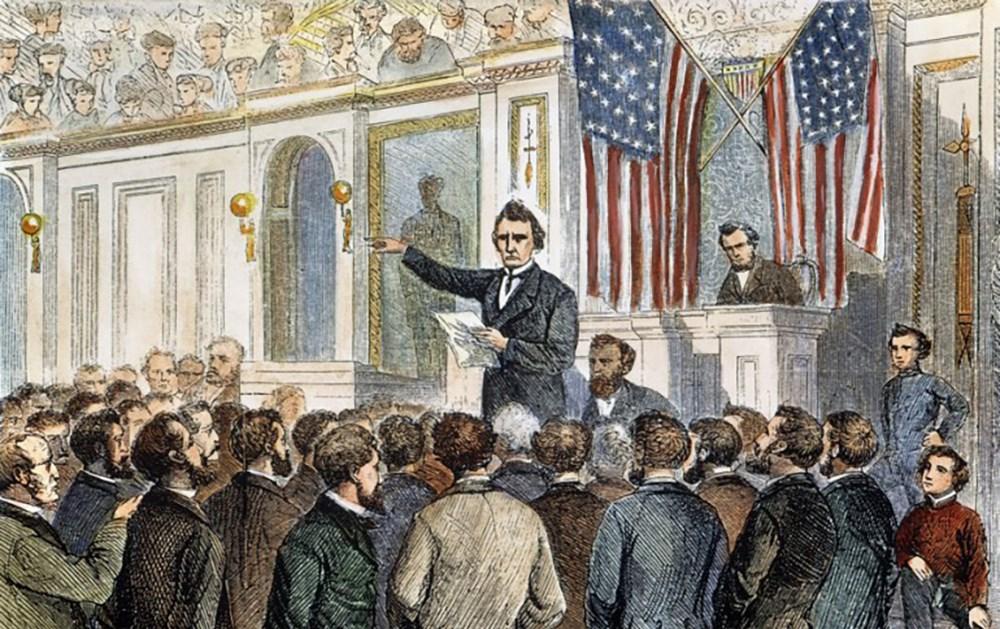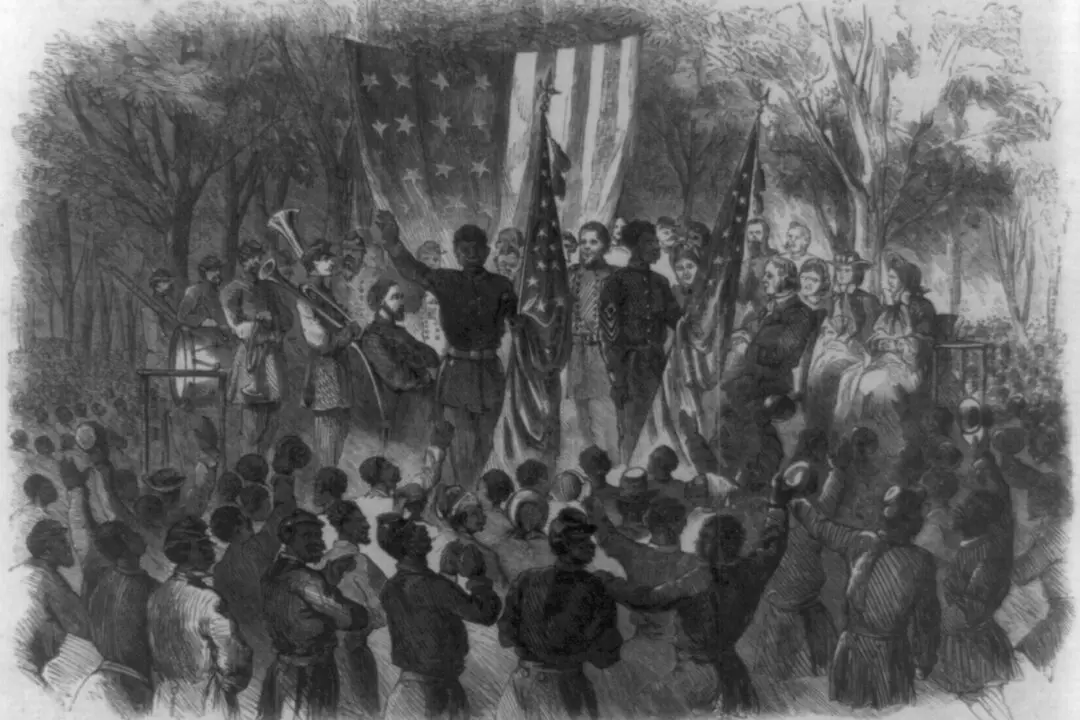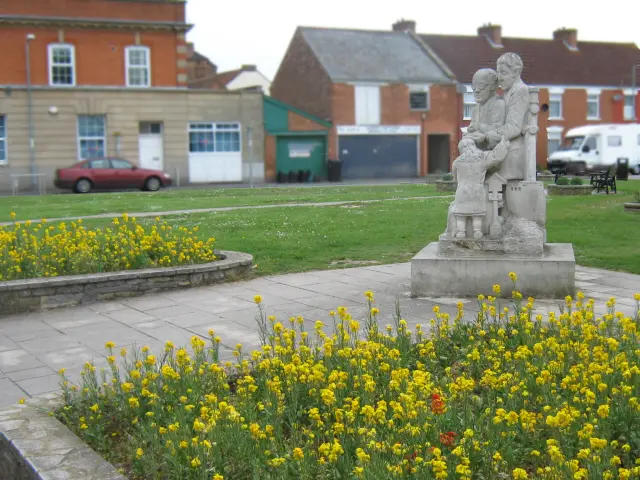Known as a “radical abolitionist,” Thaddeus Stevens spent much of his life fighting to end slavery. As an American congressman, he paved the way for the passage of the 13th, 14th, and 15th amendments to the U.S. Constitution after the Civil War.
Stevens was born in Vermont in 1792 to Joshua and Sarah Stevens, who were devout Baptists. Stevens’s mother insisted that her children pursue a quality education. Stevens attended Dartmouth College and graduated in 1814. Shortly after graduation, Stevens moved to Pennsylvania and took up teaching. During his time teaching at York Academy in York, Pennsylvania, Stevens studied law at night to follow his dream of becoming a lawyer.






